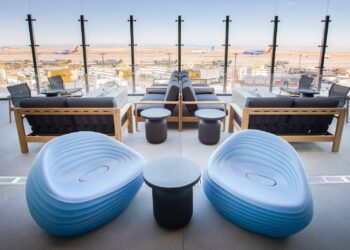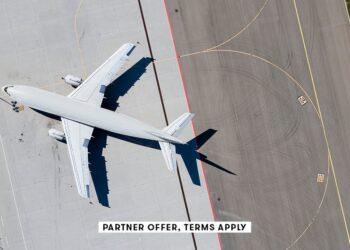China was a booming alternative when United Airways launched flights to Chengdu a decade in the past.
“China is a market that’s an financial system that continues to develop at a really sturdy tempo. And there are various alternatives in China which you can develop markets with, notably with the [Boeing] 787,” Jim Compton, United’s then-chief income officer, mentioned in July 2014.
Chengdu was a part of the Chicago-based provider’s “secondary Asian metropolis technique.” It additionally included returning to Taipei, Taiwan, the identical yr the Chengdu service launched and, in 2016, including the Chinese language metropolis of Xi’an to its map. The airline’s future in China appeared brilliant.
Need extra airline-specific information? Join TPG’s free biweekly Aviation publication.
United was not alone. The variety of seats flown by all airways between the U.S. and China grew by almost 67% from 2014; it reached a peak of 5.3 million in 2018, in keeping with Cirium Diio schedules. Airways served the market with 5.2 million seats in 2019.
Whereas there have been complaints of aggressive pressures — particularly by U.S. airways of their Chinese language rivals — the world was extensively seen as a possibility.
Quick ahead to in the present day — one world pandemic and geopolitical adjustment later — and issues look very, very completely different for airways on U.S.-China routes.
“Demand for China is down dramatically than the place it was in 2019,” Andrew Nocella, United’s present chief business officer, mentioned in July. “And it is also troublesome to fly there due to the dearth of Russian overflight potential. So these two mixtures simply make this the brand new regular.”
That “new regular,” as Nocella put it, is one the place flights are severely restricted to 100 every week (50 for every nation’s airways). It is one the place Russian airspace is closed to U.S. airways however to not the nation’s Chinese language counterparts. It is also one the place fewer People are touring to China than Chinese language nationals to the U.S.

Each day Publication
Reward your inbox with the TPG Each day publication
Be a part of over 700,000 readers for breaking information, in-depth guides and unique offers from TPG’s specialists
And United’s Chengdu flight? It hasn’t operated in 4 years.
Few nonstop US-China flight choices
David Yu is aware of firsthand what it is wish to fly between the U.S. and China. A professor of finance at New York College Shanghai and the chair of Asia Aviation Valuation Advisors, he flies backwards and forwards between the Washington, D.C., space and Shanghai often.
When requested in regards to the expertise, Yu’s first response was: “It prices quite a bit.”
When to go: These are one of the best instances to purchase a world flight
The excessive value is the results of scarce provide. U.S. airways are flying simply 39 weekly nonstop flights, and their Chinese language counterparts are flying 50 flights for 89 whole, Cirium Diio schedules present. Earlier than the coronavirus pandemic, there have been round 340 weekly flights — almost 4 instances greater than now.
American Airways serves Shanghai each day from its Dallas-Fort Price hub, and Delta Air Traces connects the town to Detroit and Seattle. In the meantime, United Airways hyperlinks Beijing and Shanghai to San Francisco, in keeping with Cirium Diio. Air China, China Jap Airways, China Southern Airways, Hainan Airways, Sichuan Airways and Xiamen Airways have additionally resumed choose flights.
“From the U.S., the flights are very costly,” Yu mentioned. “I am taking a look at flights from $2,000 to $2,500 for round-trip financial system, and earlier than COVID-19, these had been $800 to $1,000 tickets.”
The price of an financial system round-trip ticket between Washington, D.C., and Shanghai with only one connection in every course — the shortest itinerary accessible — is greater than $1,900 on American and Delta in mid-September, Google Flights exhibits. Vacationers might discover no-frills fundamental financial system fares nearer to $1,500, however these do not permit seat choice or free modifications.
‘Aeropolitical challenges’
Delta, in a February submitting with the U.S. Division of Transportation, cited “ongoing aeropolitical challenges” for its request to idle 32 of its 42 weekly U.S.-China flight rights via October.
A Delta spokesperson was not accessible to elaborate on the airline’s that means of “aeropolitical challenges.”
Support authors and subscribe to content
This is premium stuff. Subscribe to read the entire article.












